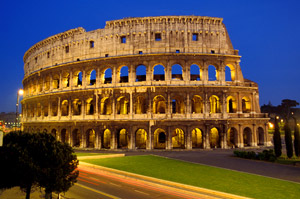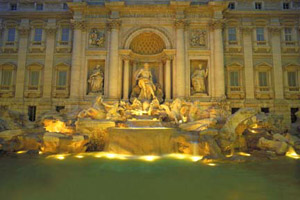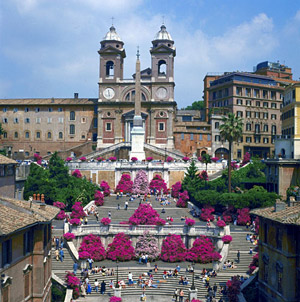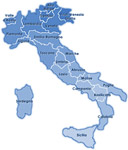About Rome
Rome's early history is shrouded in legend.
According to Roman tradition, the city was founded
by the twins Romulus and Remus on 21 April 753 BC.
Archaeological evidence supports the view that Rome
grew from pastoral settlements on the Palatine Hill
built in the area of the future Roman Forum. While
some archaeologists argue that Rome was indeed
founded in the middle of the 8th century BC, the
date is subject to controversy. The original
settlement developed into the capital of the Roman
Kingdom (ruled by a succession of seven kings,
according to tradition), and then the Roman Republic
(from 510 BC, governed by the Senate), and finally
the Roman Empire (from 27 BC, ruled by an Emperor).
This success depended on military conquest,
commercial predominance, as well as selective
assimilation of neighbouring civilisations, most
notably the Etruscans and Greeks. From its
foundation Rome, although losing occasional battles,
had been undefeated in war until 386 BC, when it was
briefly occupied by the Gauls. According to the
legend, the Gauls offered to deliver Rome back to
its people for a thousand pounds of gold, but the
Romans refused, preferring to take back their city
by force of arms rather than ever admitting defeat,
after which the Romans recovered the city in the
same year.
Roman dominance expanded over most of Europe and the shores of the Mediterranean Sea, while its population surpassed one million inhabitants. For almost a thousand years, Rome was the most politically important, richest, and largest city in the Western world. After the Empire started to decline and was split, it lost its capital status to Milan and then to Ravenna, and was surpassed in prestige by the Eastern capital Constantinople.





